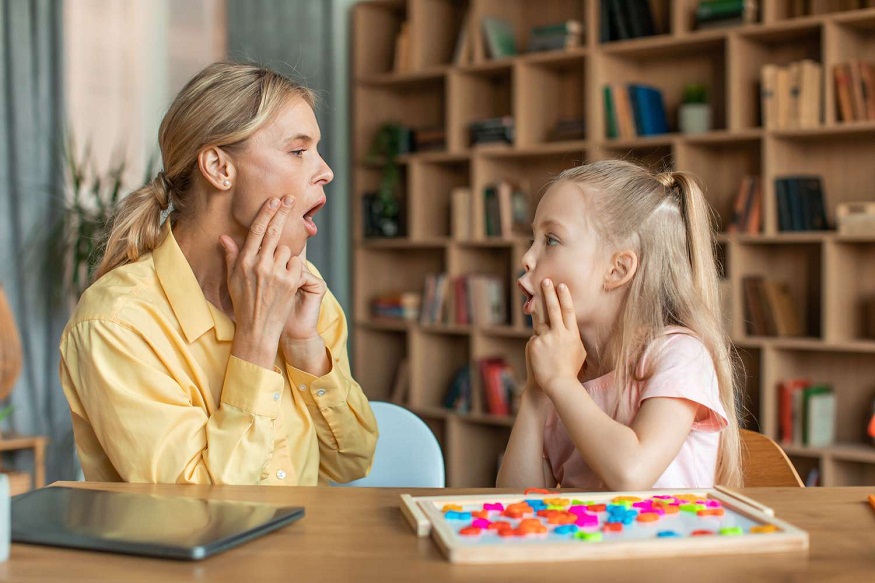Speech therapy is a vital component in assisting kids in acquiring critical social skills. These abilities are fundamental to relationship development and successful communication. Many youngsters find it difficult to navigate social relationships, especially those who have speech and language difficulties. On top of the treatment of speech and language disorders, speech therapy for children greatly improves the development of their social skills.
Developing Self-Confidence
Low self-esteem and confidence are common issues for kids with speech and language disorders, particularly in social situations. Speech therapy gives kids the skills they need to communicate well, which fosters confidence in them. They gain confidence in their capacity to communicate and engage as their therapy progresses. This greater self-assurance results in more enjoyable social interactions and a desire to interact with others.
Teaching Pragmatic Language Skills
The social use of language, or pragmatic language skills, is a crucial component of communication. These abilities include the comprehension and effective application of gestures, facial expressions, and speech tonality. Children are taught by speech therapists how to recognise and make good use of these nonverbal clues. They also emphasise respecting social norms, taking turns, and maintaining topicality in talks. When these abilities are mastered, kids can join in conversations in a more appropriate and natural way.
Promoting Interactions Among Peers
Children with speech and language impairments may find it difficult to interact with peers in social situations. Children receive group therapy as part of their speech therapy so they can practise social skills in a safe setting. Children can practise communicating in real-world situations during these sessions by playing games, telling tales, and working on group projects. Children learn how to settle disputes, form friendships, and work cooperatively with others through these interactions.
Dealing with Social Anxiety
Effective communication and the development of social skills can be severely hampered by social anxiety. Children with social anxiety can be helped by speech therapists by learning coping mechanisms for difficult situations. Role-playing exercises could be used to help kids be ready for different social situations, like making an introduction, asking for assistance, or joining a group activity. Children become less nervous and more at ease in social situations when they practise these interactions in a secure context.
Encouraging Emotional Regulation
Emotional control is often necessary for social interactions to be effective. For the purpose of good communication and enduring relationships, children must learn to recognise and control their emotions. Activities that assist kids in recognising their emotions and creating coping mechanisms can be used in speech therapy. A youngster might learn from a therapist, for instance, how to communicate emotions in a way that is acceptable to others or how to utilise calming strategies when they are feeling upset. To keep up positive social relationships, these abilities are essential.
Promoting Parental Participation
A key element of a child’s successful speech therapy programme is parental involvement. In order to provide techniques and exercises that parents may do at home, speech therapists frequently collaborate closely with them. In order to provide their children more opportunities for social connection and to reinforce the skills they have learnt in therapy, parents are essential. Parents can guarantee that their child’s therapy progresses to better social skills in daily life by actively participating in their child’s sessions.
Consistency and Support
For social skills to develop, practice and reinforcement must occur consistently. Children can practise and improve their skills in a controlled atmosphere through speech therapy. Therapists ensure ongoing progress by utilising a variety of approaches and exercises customised to each child’s need. Frequent sessions enhance and reinforce learning, which is essential for the long-term development of social skills that work.
Conclusion
The goal of speech therapy for children is to help them interact socially as well as improve their speech. Speech therapy greatly enhances children’s social development by fostering self-assurance and imparting practical language skills, which equips them for more fruitful interactions in the future.

